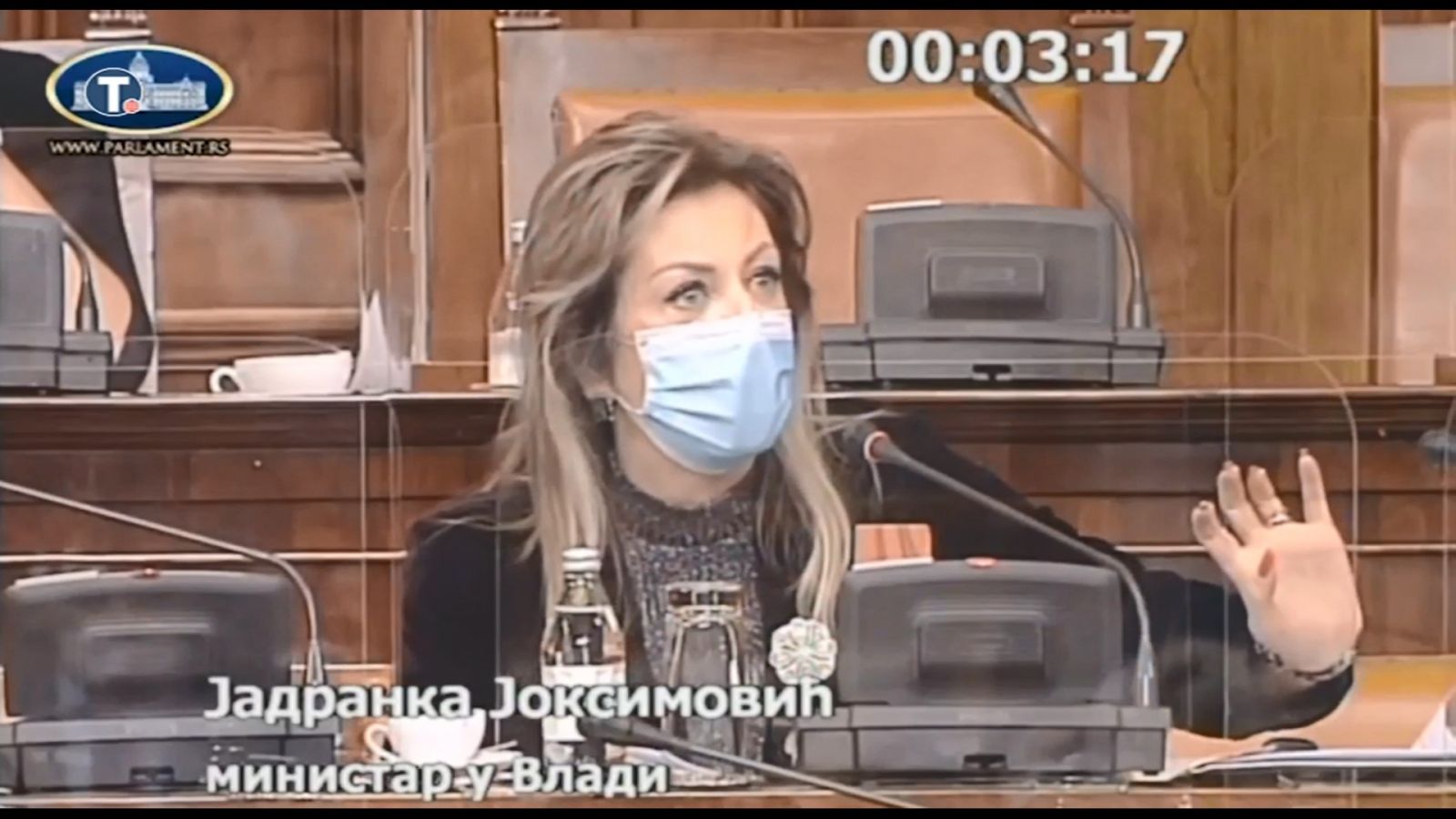
Minister of European Integration Jadranka Joksimović has stated today that nobody can expect Serbia at this stage of the accession process to be one hundred per cent aligned with the common foreign and security policy of the EU, adding that as the process advances the anticipation of harmonisation will continually increase.
At the Assembly’s session dedicated to discussion on the EC Progress Report’s conclusions on Serbia, Joksimović has said that both Article 10 of the SAA and our negotiating framework note that there are political and economic interests that an acceding country may promote until its accession to EU membership.
“There are political expectations, notably by some member states, that Serbia should align more, and such expectations will be on the increase depending on what happens between EU-China and EU-Russia”, Joksimović said.
She has emphasised that Serbia understands what is expected of it and considers its political and economic interests.
When it comes to Kosovo’s self-declared independence, where Serbia enjoys support from the Security Council, Joksimović has recalled that it also enjoyed support from the EU, namely five countries that did not recognise the independence of Kosovo.
“That is why the EU needs to be status-neutral. This does not entirely happen always because the influence of certain member states that recognised independence is very strong“, she added.
Joksimović has said that the common foreign and security policy is a challenge for the EU itself and in this sense, she has indicated that the differences regarding some issues of common foreign and security policy were so big that it was even considered to replace voting by consensus with the qualified majority deciding.
“The process is so strongly emphasised in a political sense. The new methodology puts emphasis on the political management of the process instead of only technocratic dimension, which is nevertheless important. The process is complex, it does not even reflect equally on all countries in the region, our bilateral relations are also different, but I am sure that the expectations will grow as the process advances“, the Minister has said adding that this is the first time that we have a geopolitical European Commission and that the expectations will therefore only grow.
As she has said, the Report exaggerated the critique against Serbia’s gratitude to China for the assistance provided during the fight against Coronavirus pandemic, even after the President and the Government demonstrated strong solidarity with the EU alike vice versa. The attitude of the EU towards China and Russia, as well as the US and Turkey, will be challenging. It is particularly important how the EU takes its position towards the proclaimed goal of climatic neutrality until 2050, whereby Europe would become the first climate-neutral continent; not all global actors have the same approach, and there is also strong economic rivalry. It is important for Serbia to be competitive and in line with the European growth model.
All this brings about different political anticipations, Joksimović has explained.
“Common foreign and security policy is conditioned by geoeconomic and geopolitical platforms of most EU countries, and we will be expected, as we advance in the process, to fit into the common foreign and security policy increasingly”, the Minister has said.
Source: Tanjug






